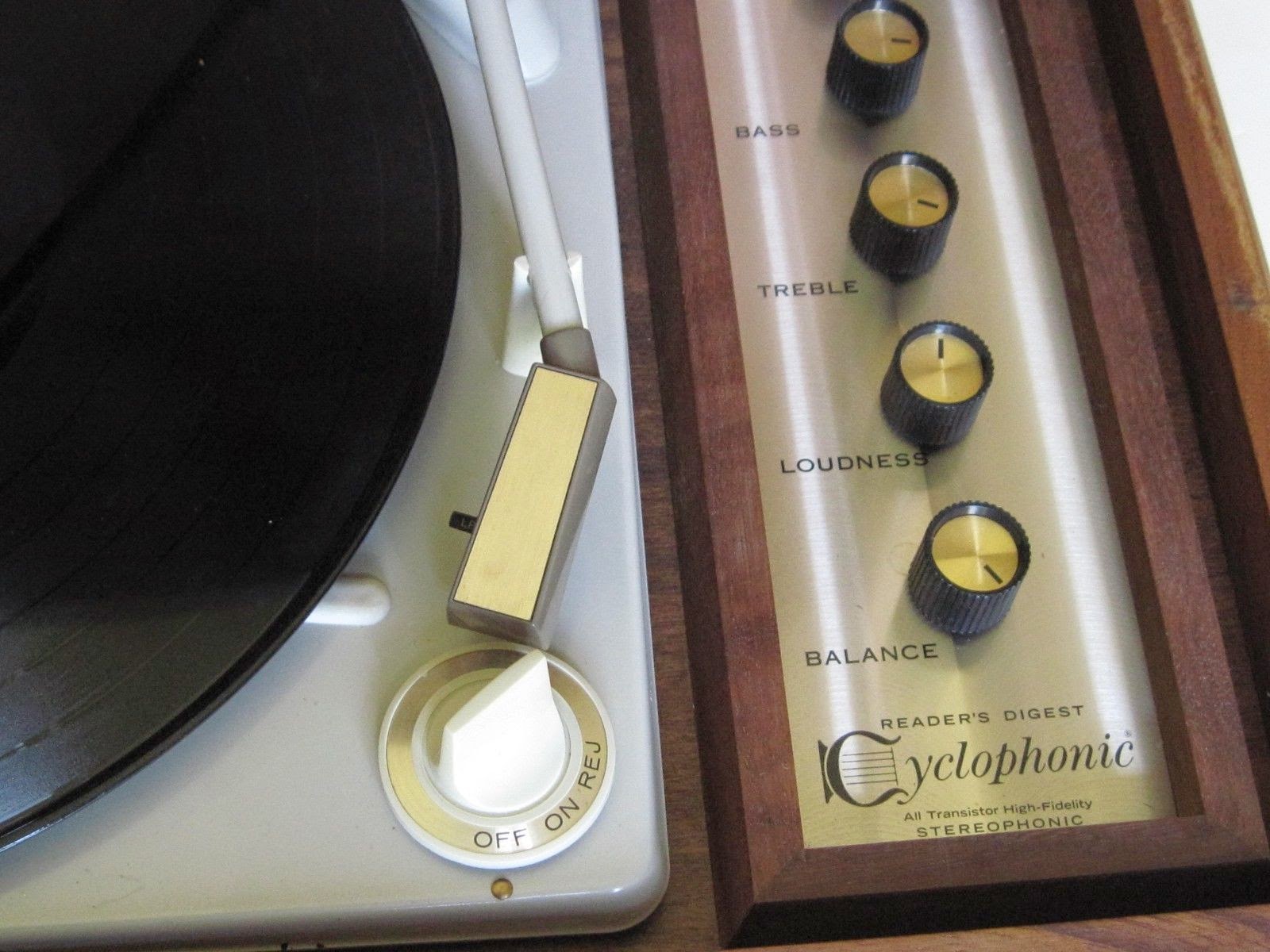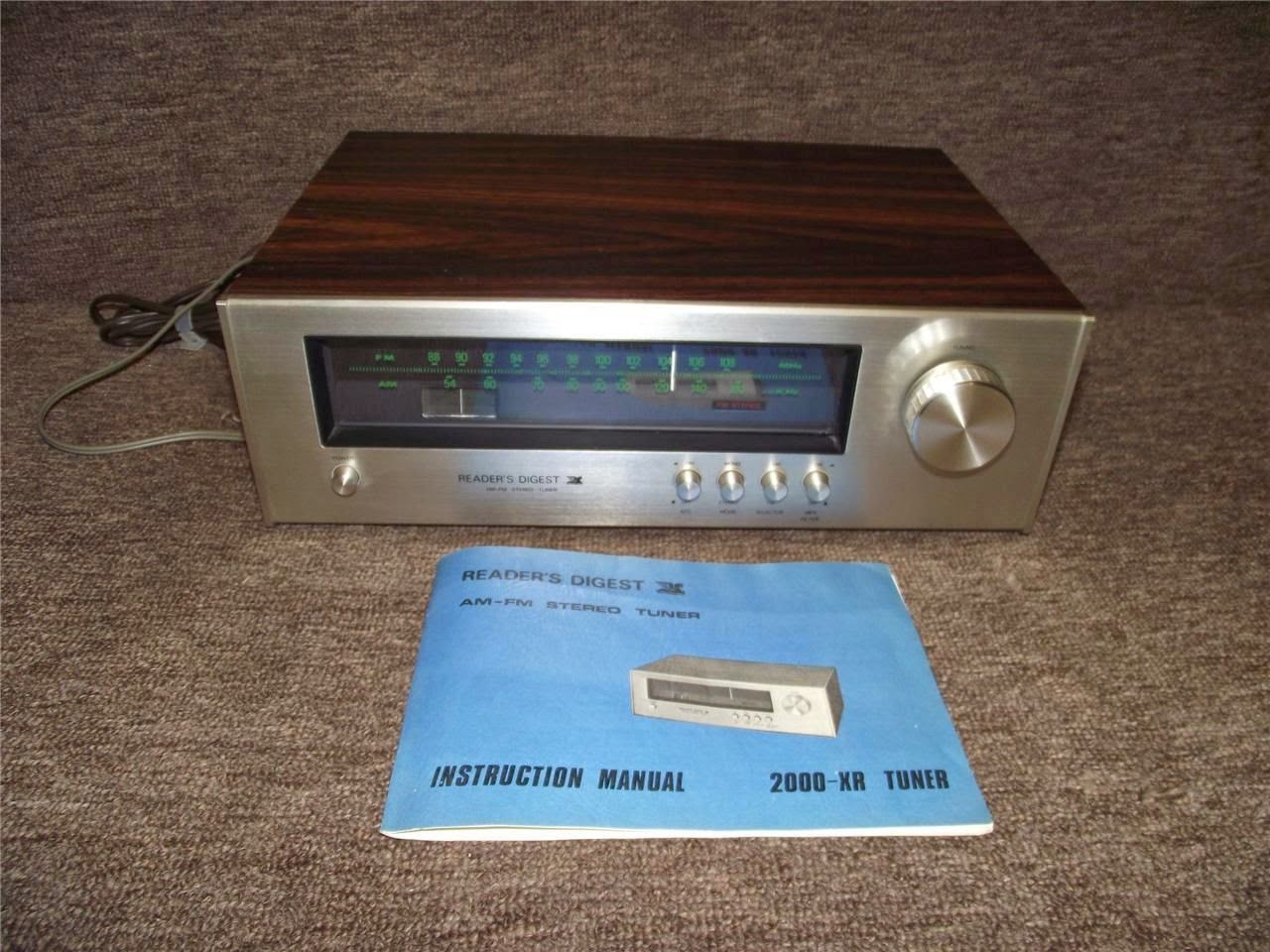Happy Pride Weekend!
Through most of the early 20th century, most LGBT media was in print. And very underground. But there were plenty of nudge-wink songs on recordings and in night clubs. In the 1920s and early 1930s, there was a musical trend called "The Pansy Craze", which featured cross-dressing performers that was very popular in large cities before the Great Depression began. But after, it was a different story.
The very first known attempt at creating LGBT oriented radio happened in 1933 when a musical revue called Boys Will Be Girls, starring female impersonator Rae Bourbon was broadcast live over San Fransisco radio station KFWI. But the program barely started when police raided the club (which was heard live over the air) and Bourbon was arrested.
While freedom of the press was one inconsistent thing for LGBT media, freedom of speech over the radio was another altogether during the early and mid 20th century. Anything even casually referring to homosexuality was forbidden over the airwaves.
But LGBT oriented radio has around longer than you might think. It's beginnings were on radical, anything-goes progressive community radio stations such as WBAI New York, KPFA Berkeley and KRAB Seattle.
In 1962, WBAI-FM New York aired the very first known completed LGBT-oriented radio program, a roundtable discussion called Live and Let Live which chronicled the lives of 8 area gay men. After the Stonewall Riots in 1969 and through the 1970s, LGBT radio programs began appearing on Pacifica and unaffiliated public radio stations. KRAB-FM Seattle broke new ground by featuring weekly LGBT programming such as The Women's Survival Kit, WE: Women Everywhere and Amazon Media. Even one with a very tongue in cheek title Make No Mistake About It, It's a Faggot and a Dyke.
However, this upswing for LGBT radio in the 1970's was seriously cut short in the 1980s after a new wave of social conservatism swept across America during the Reagan era. Programs that once aired frank discussions on LGBT issues were forced to tone down. Even as AIDS was becoming epidemic. Many LGBT programs simply vanished.
The fear was brought home when a lesbian program host on KRAB was intimidated by the FBI.
 CIRR 103.9 FM, (103.9 Proud FM) out of Toronto, Ontario Canada is the only terrestrial commercial LGBT oriented station that seems to have risen above all that. At first listen, you'd have a hard time telling the difference between Proud FM can any other CHR/Top 40 station on the dial. It's musical format mostly skews in that direction, with some upbeat '70s/'80s/'90s pop hits thrown in. It's just a feel good wall of non-stop party music.
CIRR 103.9 FM, (103.9 Proud FM) out of Toronto, Ontario Canada is the only terrestrial commercial LGBT oriented station that seems to have risen above all that. At first listen, you'd have a hard time telling the difference between Proud FM can any other CHR/Top 40 station on the dial. It's musical format mostly skews in that direction, with some upbeat '70s/'80s/'90s pop hits thrown in. It's just a feel good wall of non-stop party music.
Through most of the early 20th century, most LGBT media was in print. And very underground. But there were plenty of nudge-wink songs on recordings and in night clubs. In the 1920s and early 1930s, there was a musical trend called "The Pansy Craze", which featured cross-dressing performers that was very popular in large cities before the Great Depression began. But after, it was a different story.
The very first known attempt at creating LGBT oriented radio happened in 1933 when a musical revue called Boys Will Be Girls, starring female impersonator Rae Bourbon was broadcast live over San Fransisco radio station KFWI. But the program barely started when police raided the club (which was heard live over the air) and Bourbon was arrested.
While freedom of the press was one inconsistent thing for LGBT media, freedom of speech over the radio was another altogether during the early and mid 20th century. Anything even casually referring to homosexuality was forbidden over the airwaves.
But LGBT oriented radio has around longer than you might think. It's beginnings were on radical, anything-goes progressive community radio stations such as WBAI New York, KPFA Berkeley and KRAB Seattle.
In 1962, WBAI-FM New York aired the very first known completed LGBT-oriented radio program, a roundtable discussion called Live and Let Live which chronicled the lives of 8 area gay men. After the Stonewall Riots in 1969 and through the 1970s, LGBT radio programs began appearing on Pacifica and unaffiliated public radio stations. KRAB-FM Seattle broke new ground by featuring weekly LGBT programming such as The Women's Survival Kit, WE: Women Everywhere and Amazon Media. Even one with a very tongue in cheek title Make No Mistake About It, It's a Faggot and a Dyke.
 |
| From a 1975 KRAB Radio listening guide. Image: krab.fm |
The fear was brought home when a lesbian program host on KRAB was intimidated by the FBI.
In 1998, an
upstart radio network called The Triangle Radio Network was formed in
Palm Springs, CA and was carried on two Seattle area radio stations.
The
network initially consisted of two small AM radio stations in the
Seattle area, KBRO 1490 AM and KNTB 1480 AM (licensed to Lakewood, WA, a
suburb of Tacoma.)
The
network consisted mostly of daily personality talk programs with some
music added (the selection was up to whoever was on the air. I've heard
everything from thrash metal to country) and electronic music
overnights. It didn't have any real consistency, like Proud FM. It also
appeared to be skewed to an older audience and completely missed the
younger demographic. Being on low-fi, staticky monaural AM radio didn't
help.
 |
| (KBRO sticker from 1984, during their run as a soft rock station. Image: Radio Sticker of The Day) |
And
KBRO, with only 1,000 watts and a tower in it's city of license across
Puget Sound in Bremerton however has the added curse of having only a
noisy rimshot daytime signal inside Seattle on the graveyard channel of 1490 kHz, which severely hindered nighttime reception outside of Bremerton.
And KNTB on 1480 was even worse, It had daytime signal problems in Tacoma and it had to drop nighttime power to 111 watts.
And
when you can't even be heard 7 miles from both your own respective
transmitter sites at 2am (did I mention this was on AM radio?) Well,
you've got signal problems.
The
Triangle Radio Network was never able to attract a sustainable
audience. They never appeared in the Seattle/Tacoma ratings and major
advertisers then were reluctant to advertise on a upstart network with
no ratings. Especially one that was so niche and potentially
controversial in 1998 and they folded in 2001. KBRO and KNTB are now
Spanish language affiliates of ESPN Deportes.
But there's a few terrestrial AM/FM radio stations today that are programmed for the LGBT community and there will be more to come. I once talked to a marketing consultant a few years ago. He told me about it and he explained why; They're influential on others, they set the trends in everything. Many are upscale. And they like to shop.
He emphasized those last few words with all the delicious, hand rubbing zeal you'd expect from a go-getter money guy.
 |
| "Excellent....." |
One of the difficulties of programming a commercial LGBT oriented radio station is what would you play? You can't necessarily target an entire genre of music on someone's sexual orientation any more than you can target an entire genre on someone's gender. Everyone is different.
While there are entire sub-genres of music made by gay and lesbian artists specifically for the LGBT community, these artists are mostly unknown independent acts. And none of it has had any commercial familiarity or popularity outside of a very niche audience - even within the LGBT community itself.
And talk for the LGBT community is very difficult because while the range of topics are infinite, some of them are still unmentionable on the air in some more socially conservative backwaters at the risk of starting license threatening and very expensive and epic legal problems with government broadcasting regulators (such as the FCC in the United States and the CRTC in Canada)
 CIRR 103.9 FM, (103.9 Proud FM) out of Toronto, Ontario Canada is the only terrestrial commercial LGBT oriented station that seems to have risen above all that. At first listen, you'd have a hard time telling the difference between Proud FM can any other CHR/Top 40 station on the dial. It's musical format mostly skews in that direction, with some upbeat '70s/'80s/'90s pop hits thrown in. It's just a feel good wall of non-stop party music.
CIRR 103.9 FM, (103.9 Proud FM) out of Toronto, Ontario Canada is the only terrestrial commercial LGBT oriented station that seems to have risen above all that. At first listen, you'd have a hard time telling the difference between Proud FM can any other CHR/Top 40 station on the dial. It's musical format mostly skews in that direction, with some upbeat '70s/'80s/'90s pop hits thrown in. It's just a feel good wall of non-stop party music.
Weeknights feature the syndicated Perez Hilton radio show (segments are pre-recorded and done as "voice tracks", dropped in between songs and commercial sets, similar to how John Tesh's program and Delilah is done on Adult Contemporary radio stations.) Weekends feature electronic, house and dance music and specialty programming.
If you came for any torchy Judy Garland ballads, Proud FM probably isn't for you. They even play a strange upbeat dance remix version of "Someone Like You" Adele - one of these versions, I'm not even going to try and find which particular one.
(And if you think that's weird. You. Ain't. Heard. NOTHING. Yet. Not sure if Proud FM plays this. But hearing that Adele remix threw my AADD off on yet another tangent and I just had to see how many other modern Adult Contemporary radio ballads got that treatment. - L.)
It's decidedly upbeat for a reason. First, depression sucks. Second, feel-good party music is better for a commercial LGBT station because it crosses over across the demographic spectrum, attracting straight people as well.
(Playing Proud FM also works for those unpleasant scenarios when you are absolutely out of Thorozine.)
However, Proud FM is not the very first attempt at a 24/7 LGBT commerical radio station.
3JOY 94.9 FM (Joy 94.9) Melbourne, Australia is currently the longest running all-LGBT radio station in the world and has been broadcasting since 1993.
And as this was going to print, a new low power FM station is going on the air this summer in Portland, OR. KPQR-LP 99.1 FM (Wild Planet Radio) is currently streaming now and their format musically is very similar to Proud FM.
























